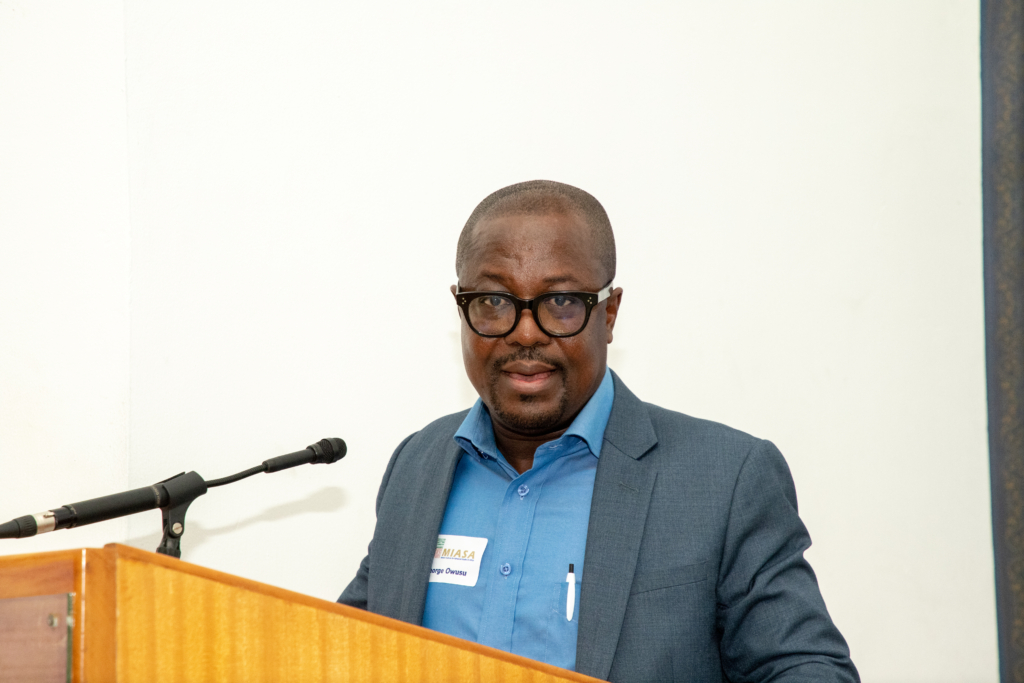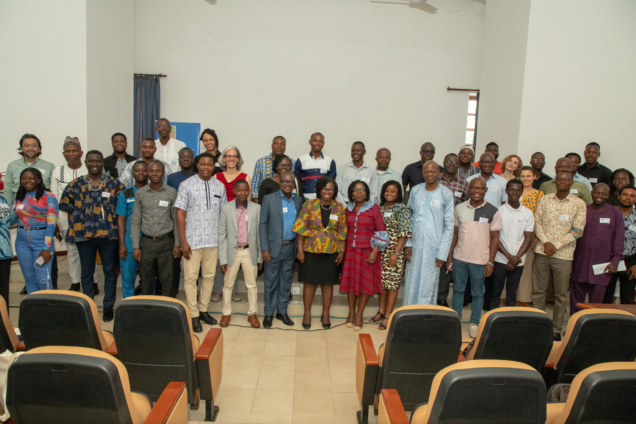The Merian Institute for Advanced Studies in Africa (MIASA) has raised concerns over the negative effects of rapid urbanisation in Ghana, particularly the loss of natural green spaces and agricultural lands due to infrastructure projects.
According to MIASA, this rapid development has contributed to frequent flooding and rising temperatures, consequently affecting the quality of life for Ghanaians.

"Rapid urbanisation in Ghana characterised by increasing infrastructure projects like highways, paved surfaces and housing has led to considerable loss of natural green spaces and agricultural lands.
“Unfortunately, most urban resilience strategies and policies in the country have focused largely on disaster management and adaptation, while the underlying political and environmental issues are rarely considered.”

MIASA said this during a two-day conference in collaboration between the University of Ghana and four German partners the University of Freiburg (leading house), the Goethe University Frankfurt, the German Institute for Global and Area Studies (GIGA), and the German Historical Institute Paris (GHIP).
The conference which started on Wednesday, May 22 and ended on Thursday, May 23 was under the theme “Urban transformation pathways, sustainable governance, and urban resilience building."
The MIASA Directors, Professor Grace Diabah (Ghana) and Professor Mamadou Diawara (Germany) stated that the conference was an opportunity to explore the topic of African cities, which is one of the intersectional topics of MIASA.

They emphasised the importance of exploring sustainable and integrated governance models to mitigate risks associated with urbanisation.
The Provost of the College of Humanities, Professor Daniel Frimpong Ofori, noted that building sustainable and resilient ecosystems is crucial, particularly in light of the recent flooding in Accra.
“Just as the start of the rainy season with the floods in Accra shows once more, it is high time for researchers to exchange ideas, form collaborations and co-create innovative solutions.”

In his keynote address on "Large-scale urban road corridors development and its implications on sprawl, agriculture, and food security in Sub-Saharan African cities,” Professor George Owusu at the Univerity of Ghana stated that traffic congestion and commuting challenges in large African cities should be viewed as an infrastructure problem.
He said "the combinations of deficit in infrastructure, traffic management, public transport systems and land use planning and that efforts are generally made towards widening roads and construction of dual carriages to allow free flow of traffic in and out of cities without policy considerations for land use planning, traffic management, housing densification and infilling development measures.”
However, he pointed out that while large-scale urban infrastructure is needed to address the infrastructure deficits in African cities, this should not be pursued at the expense of urban and land use planning, which compromises agriculture and food security.
Latest Stories
-
Baltasar Coin becomes first Ghanaian meme coin to hit DEX Screener at $100K market cap
30 minutes -
EC blames re-collation of disputed results on widespread lawlessness by party supporters
45 minutes -
Top 20 Ghanaian songs released in 2024
1 hour -
Beating Messi’s Inter Miami to MLS Cup feels amazing – Joseph Paintsil
1 hour -
NDC administration will reverse all ‘last-minute’ gov’t employee promotions – Asiedu Nketiah
2 hours -
Kudus sights ‘authority and kingship’ for elephant stool celebration
2 hours -
We’ll embrace cutting-edge technologies to address emerging healthcare needs – Prof. Antwi-Kusi
2 hours -
Nana Aba Anamoah, Cwesi Oteng special guests for Philip Nai and Friends’ charity event
2 hours -
Environmental protection officers receive training on how to tackle climate change
2 hours -
CLOGSAG vows to resist partisan appointments in Civil, Local Government Service
3 hours -
Peasant Farmers Association welcomes Mahama’s move to rename Agric Ministry
3 hours -
NDC grateful to chiefs, people of Bono Region -Asiedu Nketia
3 hours -
Ban on smoking in public: FDA engages food service establishments on compliance
3 hours -
Mahama’s administration to consider opening Ghana’s Mission in Budapest
3 hours -
GEPA commits to building robust systems that empower MSMEs
4 hours

